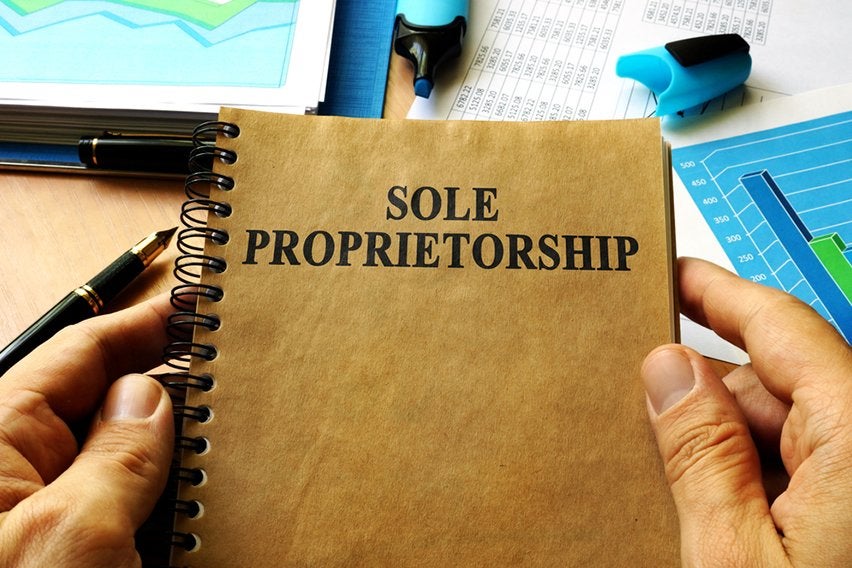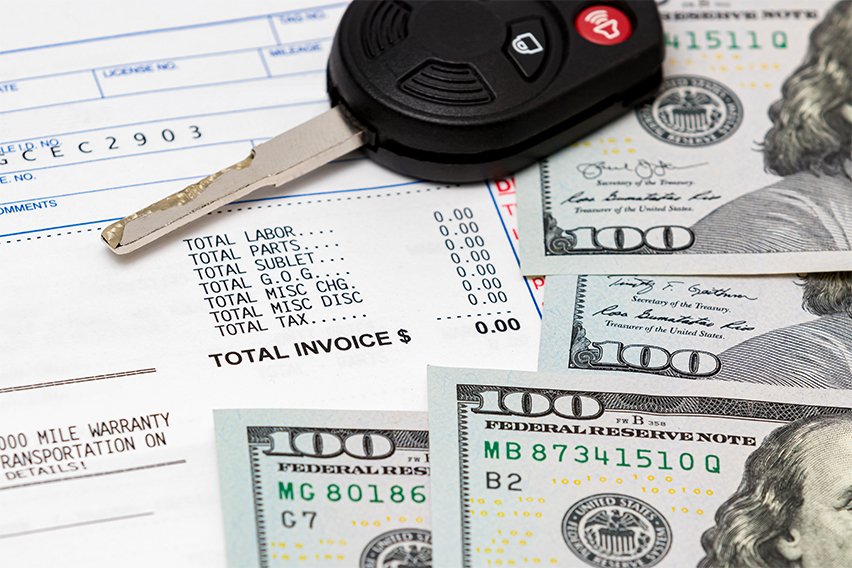Sole Proprietorship: What Is It?

One of the first things that you need to do when starting a business is deciding which type of business structure you’re going to operate under. There are pros and cons to different types of business structures, so where do you start? You could be a sole proprietorship, a general partnership or a limited liability company, among others.
Sole proprietorships are one of the most common forms of business entities. There are tons of benefits that come with being a sole proprietor, but there are also some disadvantages worth knowing. Let’s take a closer look at how a sole proprietorship works.
Here’s What We’ll Cover:
What Is a Sole Proprietorship?
What Are the Advantages of a Sole Proprietorship?
What Are the Disadvantages of a Sole Proprietorship?
What Is a Sole Proprietorship?
As a business owner, it can be difficult to decide which business structure you will go with, but a sole proprietorship is one of the most common. It can commonly get referred to as a sole trader or just a proprietorship. Basically, it’s an unincorporated business with only one owner.
The owner pays personal income tax on any profits that get earned from the business. It’s one of the easier types of business to establish and take apart. This is since there isn’t a whole lot of government regulation that surrounds a sole proprietorship.

They can be common for sole owners of a business, individual self-contractors or consultants of different kinds. Plus, sole proprietorships make a great stepping stone to restructuring into an LLC, or a limited liability company. This is often due to growth or company expansion plans.
One of the most important things to know is that there is no legal separation between the business and the owner. This means that you would be solely and personally responsible for any liabilities or debts your business incurs. A sole proprietor also isn’t a legal entity.
What Are the Advantages of a Sole Proprietorship?
There are several advantages to a sole proprietorship that are worth knowing. But, it’s worth noting that some of these advantages might vary depending on the type of business that you operate and the industry that you’re in.
A sole proprietorship is one of the easiest and least expensive forms of business to get up and running. You’re also not obligated to register a business name to start operating. This makes it ideal for self-employed contractors, business start-ups or entrepreneurs. It can also work well with part-time and home-based businesses.
Being a sole proprietor means that you are the only one that owns the business. This means that you make all the big decisions and get to guide your business in the direction you want it to go. Unlike a corporation, a sole proprietor doesn’t have to hold shareholder meetings or vote on different management issues.
And since you’re in complete control, you also get to manage your own hours, schedule and hours of operation depending on your customer’s needs.
It’s also much easier for you to organize and streamline your tax and accounting processes. Since you don’t have to file separate business tax returns, any income that you generate gets reported on your personal tax form.
Sole proprietors can also deduct business losses against other forms of income. So, if you lose money in the early years of operations, you can deduct those losses against your personal income. This makes it ideal if you want to make the transition from an employee to a self-employed individual over time.
Here is more of a list of some of the biggest advantages of being a sole proprietor.
- Easy and inexpensive to set up
- Few government regulations
- Tax advantages
- Simpler accounting processes
- You are the only owner of the business
- Deductible business losses
- You make all the business decisions
What Are the Disadvantages of a Sole Proprietorship?
While there are several advantages to being a sole proprietor, there are also some disadvantages worth noting. The biggest disadvantage is that there is no legal separation between you and the business. So, if for some reason your business ends up failing or you incur debts, you are entirely responsible.
And this stretches to your personal assets, as well, including your home or any other assets that are listed in your name. These assets can get seized to help discharge or settle any liabilities that you incur as part of your business.
It’s the same if you are sued for damages that get caused by negligence or an accident. If this happens, your personal assets can get seized.
As well, even though tax processes can be an advantage, they can also be a disadvantage since there isn’t much flexibility. This is because any and all business income needs to get reported as regular income on your personal tax return. Incorporated companies, for example, have more flexibility when it comes to how and when owners or employees get paid.

It can also be a challenge to sell a sole proprietorship since the business is tied to the owner. There’s no real distinction between an owner’s assets and the business’s assets. Which makes evaluating the business more difficult.
Here is more of a list of some of the biggest disadvantages to being a sole proprietor.
- There is no legal separation, you are responsible for any debts and liabilities
- It can be difficult to get loans or contracts
- Business income gets reported as personal income
- It can be difficult to sell the business
- Personal assets can get seized
- Injury or sickness can cause disruptions
Key Takeaways
It can be overwhelming trying to figure out which business structure to go with. There are pros and cons to each, but how do you know you’re making the right decision? A sole proprietorship comes with several advantages.
Plus, starting a business as a sole proprietor is a great way to transition into a limited liability company at a later date. This can usually happen as your business grows and expands.
A sole proprietorship is an unincorporated business that only has one single owner. As the owner, you would report any business income on your personal income tax statement. Plus, becoming a sole proprietor is one of the easiest business structures to start.
It can be a common type of business for individual self-contractors, sole owners of a business or consultants, for example. There are some great benefits that a sole proprietorship can offer. But the biggest disadvantage to knowing and understanding is that there is no legal separation.
This means that you and your business are one-in-the-same. So, if your business incurs any debts or liabilities, then you are personally liable. Your personal assets, including your home or anything else you own in your name, can get seized to settle any differences.
Did you enjoy reading this guide? Head over to our resource hub for more great content!
RELATED ARTICLES

 What Is Impairment Loss & How to Calculate It?
What Is Impairment Loss & How to Calculate It? Top Down Vs Bottom Up: What’s the Difference?
Top Down Vs Bottom Up: What’s the Difference? What Is Price Skimming? Definition & Examples
What Is Price Skimming? Definition & Examples What is Owner’s Equity? Formula, Examples & Calculations
What is Owner’s Equity? Formula, Examples & Calculations What Is Bill of Materials (BOM) & How to Create One?
What Is Bill of Materials (BOM) & How to Create One? What Is Credit Note & When Should a Business Use Them?
What Is Credit Note & When Should a Business Use Them?